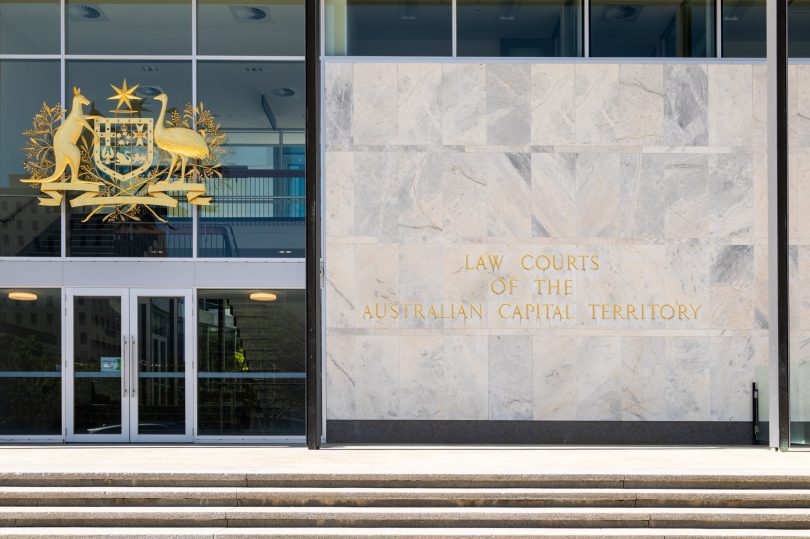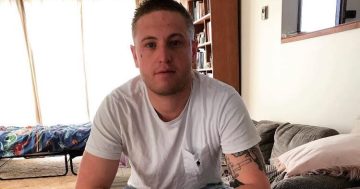
Alexander Ian Saunders pleaded guilty to two counts of aggravated burglary in company. Photo: Michelle Kroll.
A man stopped to apologise to two of his victims while on a short-lived robbery spree at the same home in Canberra last year.
Alexander Ian Saunders, 24, has admitted to the robberies, detailed in the sentencing remarks recently released by ACT Supreme Court Chief Justice Helen Murrell.
The facts in the matter state that late one night in May 2020 he and two others went to a two-storey unit in Harrison and smashed open a glass sliding door to gain entry to the home.
Four people were inside the unit at the time.
Saunders’ co-offenders carried a hammer and a baseball bat, although he himself was unarmed, and one of them used their weapon to allegedly assault a man in the unit. The trio then searched the home, damaging a television and using the bat and hammer to smash walls.
During the rampage, a female resident was in one of the downstairs bedrooms. When Saunders attempted to get inside the bedroom, one of the residents called out “someone’s mum is in that room”.
Saunders apologised to the woman, stopped trying to enter her bedroom and later left the unit.
But the very next day he returned to the unit with a co-offender, this time both armed with baseball bats, and entered the home through the broken glass door.
This time they told one of the residents, the same woman Saunders had apologised to, that they were with the “Comos”, referring to motorcycle gang the Comancheros.
The two men went upstairs where they ransacked a bedroom and took a passport and a $1600 Crenshaw watch.
When one of the people in the unit confronted the intruders and asked why they had come into the home, Saunders apologised to the man and went downstairs, while the man was allegedly assaulted by the co-offender.
Last July, Saunders pleaded guilty to two counts of aggravated burglary in company with unknown persons and offensive weapons, as well as one count each of recklessly damaging property by joint commission and theft by joint commission.
When discussing the objective seriousness of the first burglary, Chief Justice Murrell noted Saunders “apologised for frightening the resident whom he directly confronted”.
She said the former apprentice electrician had a lifelong history of struggles with mental health, was heavily intoxicated by the tranquilliser drugs benzodiazepines when he committed the offences and his abuse of substances cost him about $300 per week.
“The author of the pre-sentence report stated that the offender had shown limited insight into the impact of his behaviour on the victims, but that he had acknowledged the wrongfulness of his conduct,” Chief Justice Murrell said.
“He had said that he did not remember the offences because he had been significantly affected by substances at the time of the offences.
“Given the offender’s neuropsychological issues, I do not place a great deal of weight on the observation that the offender showed limited insight into the impact of his conduct.”
She said while no victim impact statement was provided to the court, “the unavoidable inference is that the residents would have been emotionally impacted by the incidents”.
While Saunders faced 20 years behind bars, in December he was sentenced to about two years in jail, mostly suspended to complete a 15-month a drug and alcohol treatment order followed by a good behaviour order that will end in March 2023. He previously spent several months in jail after his arrest in 2020 before being released on bail.




















